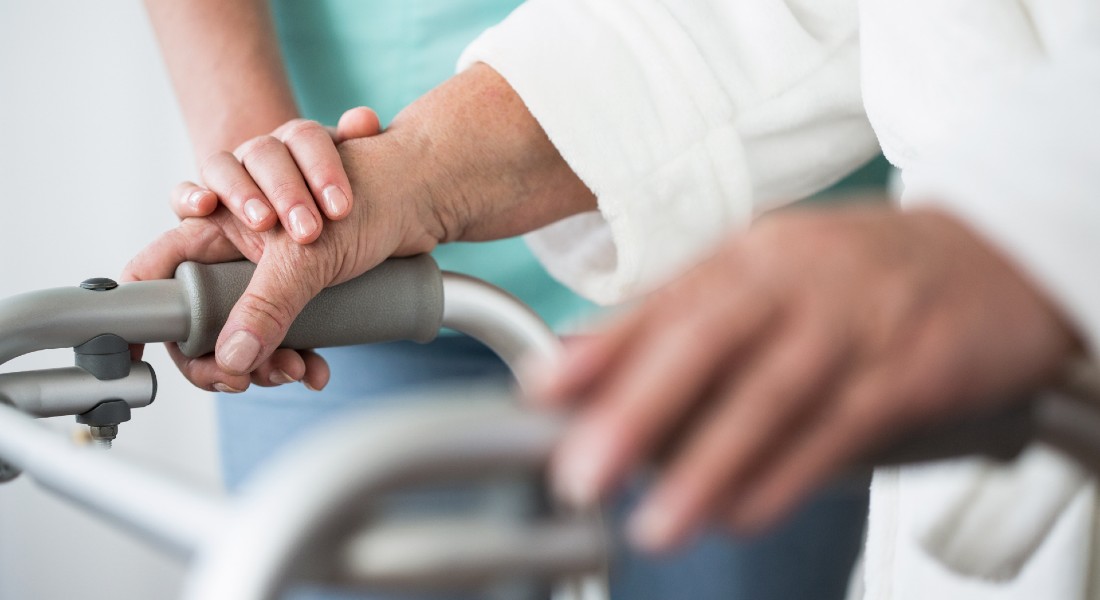When the elderly are involved in their treatment, they can get a better life
Patient involvement has been a manta within the healthcare system for a long time. Now new research from the University of Copenhagen proves that patient involvement actually does make a difference. But we still do not know exactly how to achieve successful involvement of elderly patients’ in their often complex course of treatment in a Danish context.

It may seem like a Gordian knot: A pressured Danish healthcare system must accommodate a growing population of senior citizens, who live longer lives with more and more chronic conditions.
It is a challenge which new research from the University of Copenhagen may be able to help solve.
Because involving critically ill senior citizens in their own treatment has its benefits, a new study headed by Deputy Head of Department and Associate Professor Maria Kristiansen from the Department of Public Health and the Center for Healthy Aging shows. The researchers studied patient-involving treatment of senior citizens with more than one condition, e.g. cancer, diabetes or depression.
“It seems to benefit these elderly patients to be heard and to get the right treatment and care that takes their individual needs and life situation into account,” says Maria Kristiansen.
This is the conclusion of the new so-called review study, which is a systematic review of existing research. Based on their review of 800 scientific articles, the researchers found and quality-assessed 12 studies within the area. Nine of them showed a positive effect of patient involvement, e.g. that elderly patients with several conditions experienced improved quality of life, fewer visits to the hospital and fewer symptoms when involved in a timely and systematic manner in the choices and prioritisation made in connection with their treatment.
“It shows that we, among other things, need to introduce calmer, open conversations in clinical practice based on the individual senior citizens’ life situation,” says Maria Kristiansen.
Especially one of the nine studies showed good results: a so-called patient empowerment programme conducted at an American hospital, where the doctor and senior citizen together set an individual goal.
In the course of six months, the doctor then helped the senior citizen achieve this goal by following up on their development through a series of telephone consultations. After 12 months, the senior citizens experienced improved quality of life, fewer depressive symptoms and even better control of their diabetes in terms of blood sugar values.
“It is a matter of identifying and responding to the patient’s often complex needs, especially elderly people who suffer from several chronic conditions. They can have very different needs. Some may need help changing their diet, while others have social or financial difficulties or need help with the mental aspect of ageing with several conditions. And this challenges the healthcare system, as people’s needs are extremely diverse and cannot be limited to a single department,” says Maria Kristiansen.
Robin Hood approach
It is difficult to imagine that the Danish healthcare system, which is already under pressure, will be able to find more time for individual patient-involving treatment, Maria Kristiansen agrees.
“A lot of doctors really want to talk to their patients about their everyday life and their need for support, but they may also have a medical checklist of 20 items to go through in just 10 minutes,” she says.
But in fact, the limited research suggests that patient-involving treatment can potentially result in reduced expenses and social inequality in healthcare in the long run.
“Some of the complex patients who suffer from several conditions have various contacts in the healthcare system and difficulties navigating between sectors. By individualising their treatment, we would be able to avoid unnecessary repeated contacts and thus save money, just as the patients would feel more comfortable with the choices made in the course of their treatment,” says Maria Kristiansen and adds:
“This is actually a Robin Hood approach. The idea is that if we screen people and involve them in their own treatment, some of them will require fewer healthcare services. At the same time, we would be able to spot the patients who need an extra helping hand. That is, it would increase our ability to make good use of the limited resources available to us.”
Lack of knowledge
For many years, ‘the patient first’ has been a mantra within the Danish healthcare system. But even though the new study shows improvements with regard to patient-involving treatment, we need more knowledge about what works in a Danish context.
“Right now, almost all Danish hospitals and group medical practices use different kinds of patient-involving tools – but often without knowing what actually works,” Maria Kristiansen explains and adds:
“And when all comes to all, that is a waste of resources.”
Therefore, she hopes the new study can pave the way for more research into which patient involvement tools actually work in a Danish context, which competences they require in staff and patients, and how the organisation can support fruitful dialogue.
“We could compile the essence of what works across all international initiatives and test them in a Danish context. This would show which measures are meaningful for the elderly patients, and which are sustainable from a financial and human perspective in the Danish healthcare system. In a series of research projects conducted together with Rigshospitalet and the union Yngre Læger (‘Younger Doctors’), among others, we try to identify the best way to do this,” Maria Kristiansen concludes.
Contact
Viceinstitutleder og lektor Maria Kristiansen
+45 35 33 48 05
makk@sund.ku.dk
Presse- og kommunikationskonsulent Liva Polack
+45 23 68 03 89
liva.polack@sund.ku.dk
